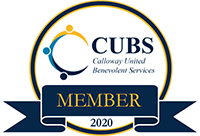How to Raise Awareness about Hidden Homelessness
“Homelessness is basically invisible in our community. How do we get the message out that it really does exist even though we don’t see people sleeping on park benches?” – Ruth
Thanks for the question Ruth! First, I want to acknowledge that our community isn’t out of the ordinary. Most people experiencing homelessness fall under the “provisionally accommodated” category of homelessness and are what most people call the “hidden homeless.”
Those experiencing hidden homelessness are “people who live ‘temporarily with others but without guarantee of continued residency or immediate prospects for accessing permanent housing.” This includes people who are: staying with friends, family or even strangers; incarcerated with nowhere to go once released; “couch-surfing;” and living in cars, church basements or hotels. Unfortunately, because these people don’t often access shelters or other housing resources, they’re not included in counts or statistics—rendering them “invisible.”
As I mentioned above, hidden homelessness is extremely common. It has been estimated that three out of five Americans who are homeless don’t live on the street. Given the prevalence of hidden homelessness, raising awareness about it is extremely important. Here are a few ways that you, and others, can help do so in your communities.
Ways to Raise Awareness
Challenge Misconceptions about Homelessness
Homelessness is complicated, varied and more widespread than we tend to think it is. Challenging the misconceptions about homelessness can happen in everyday conversations with people you know. Sometimes, all it takes is some open dialogue to change someone’s ideas about homelessness.
Just make sure you know what you’re talking about: find research, share appropriate videos, attend workshops, and volunteer. Conversations can be powerful, but adding other resources to them can increase your impact.
Identify the Specific Needs in Your Community
With around 70% of Americans experiencing homelessness being classified as hidden homeless, you probably know someone in that situation right now. Have conversations with the people you interact with every day to find out what types of hardships they may be experiencing. Asking some strategic questions and getting to know the people experiencing hidden homeless around you may help you more concretely assess the needs in your community. If you don’t know anyone who is struggling with homelessness right now, contact a local agency that provides food or housing services in the community to see if there are ways you can volunteer or get involved.
Join Ongoing Local Efforts
To really make an impact in your community, awareness efforts need to be specialized and local. This can be done in many ways, but here are a few suggestions:
- Connect with MCC Homeless Coalition. This week, they are hosting “A Night on the Town” which is a large-scale homelessness awareness event. Share the social media posts, help tell the story, and open people’s eyes up to the problem of homelessness in our community. Find them on Facebook or go to their website for more information!
- Volunteer at a local agency that provides food for at risk community members. We have several agencies that help provide meals to families and individuals throughout the community. One of the quickest ways to reach out to people who are housing insecure is to connect with people who are also food insecure.
- Join a volunteer team at HOPE Calloway. Better yet- get your friends to join with you. There are always volunteer opportunities at HOPE Calloway for you to directly impact the hidden homeless of our community. Visit the Get Involved page on our website for more information.
For families in economic crisis, the threat of losing safe and secure housing lives out in many ways. Some families are forced to relinquish their homes and double-up with friends or family. Others rush to sell their homes before the bank forecloses on their defaulted mortgages. Tenants who are financially vulnerable are stretched to pay too much rent for sub-standard housing or face the threat of an eviction notice. Some must resort to seek refuge in shelters.
Thanks for your question, and I hope these suggestions help!
Have a homeless-related question you want answered? E-mail us at info@hopecalloway.org and we will provide a research-based answer.


